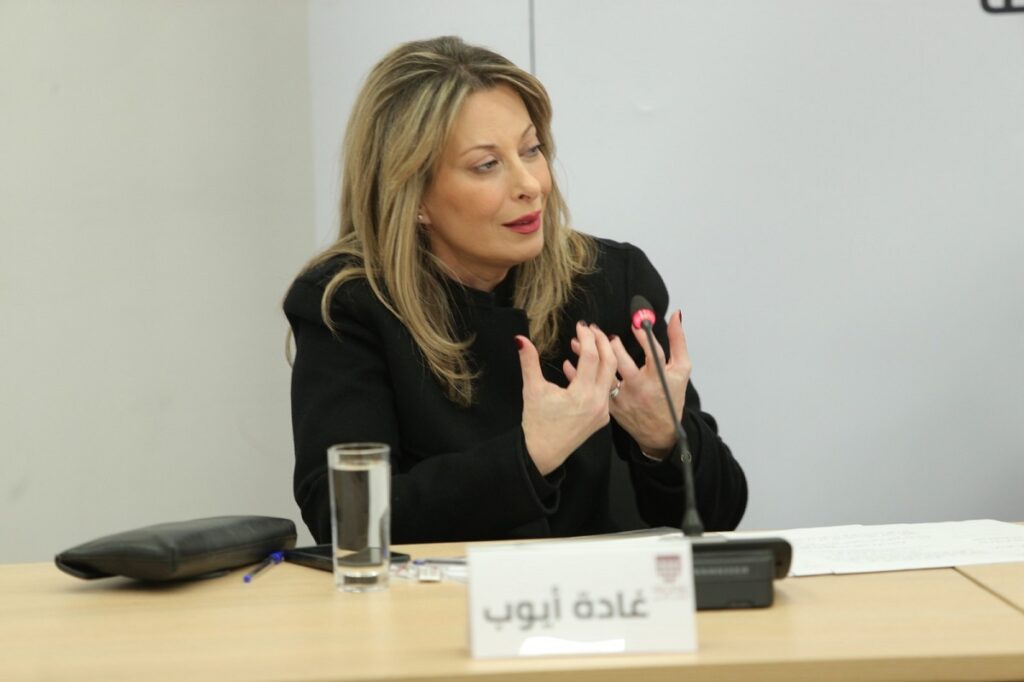
Lebanon’s ecosystem begs new stimulus and a vibrant banking system
Lebanon’s current economic situation requires innovative solutions to transition towards knowledge-based models. Unfortunately, due to a lack of essential tools and incentives for effective innovation activation and commercialization, the country is in a decline in overall innovation output. Its main victims are the tech and startup sector, a breakthrough for all aspirants to create innovative projects. Today the country has a banking sector in limbo; the tech and startup ecosystem is seeking a new direction after the many upheavals of the sector. The country experienced liquidity shortages in the years prior to 2019, but the full extent of the fragility of the economy was concealed through financial engineering by the governor of the central bank. Lebanon’s crisis was worsened by a sharp recessive environment and triple-digit inflation.
To address this issue and as part of the project “Lebanon in its Second Century: A Vision for the Future,” the Faculty of Arts and Sciences, and the Department of History and Archaeology held its seminar: “The Future of Lebanon: The Demise of the Technology and Banking Sectors.” The conference included three sessions led by Assistant Professor at Suliman S. Olayan School of Business, Dr. Amr Al-Kibbi, focusing on entrepreneurship and organizational studies. He pointed out that “applied scientific discoveries, or what is known as technology, are both an accompaniment and a challenge to human civilization.”

Dr. Amr Al-Kibbi, Assistant Professor at Suliman S. Olayan School of Business
Al Kibbi made a swift analysis of the transformation of the economy during ages. He said: “with the discovery and control of fire, humans transitioned from one of the weakest creatures in their environment to the first and most dangerous hunters with the discovery of agricultural technology, a new era began allowing humans to settle and build kingdoms, and later empires. Owners of fertile lands were the powerful and wealthy in that agricultural era, leading to competition between landowners and feudal empires. This era was followed by the industrial revolution and the industrial era which was accompanied by a new political concept of the nation-state.” He said a new economic model emerged, known as the market economy, with industrialists, bankers, and primary resource miners becoming the powerful figures. “Society divided mostly into the class of employers and the working class, forming the poles of economic theories that have prevailed to this day: capitalist right and labor-oriented left.”
Al-Kibbi considered the transition from the agricultural era to the industrial era to be disruptive. In less than 100 years, the global workforce shifted from 80% or more engaged in agriculture to 20% or less. This significant transformation was accompanied by numerous devastating colonial and world wars, tragedies, and genocides, the consequences of which are still felt today. All these events were triggered by the invention of the steam engine.
Today, the world faces five technologies surpassing the transformative power of the steam engine: artificial intelligence, the Internet of Things, big data, blockchain, and quantum computers. Each of these technologies has an inherent transformative power exceeding that of the steam engine. In comparison, the industrial revolution took about 100 years to spread worldwide, but the digital revolution is spreading within months globally. Therefore, it is imperative for us to ask: What is the future of Lebanon in light of these changes?
In the first session, the specialist in public finance, tax law, and Assistant Professor lecturing on public budgeting, tax law, tax procedural law, tax disputes, financial law, and international human rights law, Dr. Ghada Ayoub, weighed systems that have progressive taxes and their relationship to investments. “It is a policy issue that requires new attention in Lebanon,” she said. Reforms to the tax system are absent since a decade, she emphasized.

Dr. Ghada Ayoub, member of lebanese parliament
Ayoub stated that “when discussing the digital and knowledge economy, we must first ensure the presence of several conditions that make it an effective and stable digital economy. These conditions include the existence of necessary laws and regulations, providing the infrastructure and necessary supports for its growth and prosperity, and having an interactive and effective human environment, alongside the digital transformation in the state’s administrations and institutions, and activating the partnership between the private and public sectors in this field.”
She noticed that several public policy strategies related to digital transformation have been put in place, but they change with changes in governments, indicating the absence of short-term and long-term planning. It is noteworthy that Lebanon has taken several steps to advance towards the digital economy, such as the focus on digital transformation supported by laws like the Personal Data Law, Electronic Transactions, and Electronic Signatures. However, this is not sufficient to ensure a nurturing environment for the digital economy.
In fact, Lebanon ratified in 2022 the “Lebanon Digital Transformation Strategy 2020-2030,” a new dynamic aimed at achieving the set reform goals and mimicking the trends and mechanisms of the digital age. As such, while the Office of the Minister of State for Administrative Reform (OMSAR) was striving to reform the public sector and implement an anti-corruption strategy, it was also working meticulously to implement the digital transformation initiative, which would contribute to reviving the public sector and meeting the aspirations of citizens, upon its implementation and sustainability. However, this document has not been given proper follow-up from the executive.
Today, the government’s goal to increase its revenue by mainly relying on indirect taxes such as the VAT, which are regressive; meaning it is the poorest in the country who will bear the brunt of that burden. Also, SMEs saw a hike in their contribution to VAT. In the current budget, the government increased some progressive taxes, such as the income tax for non-residents, a move that can have negative repercussions on investments. The draft law in its current form has the government expecting 4.4 times more revenue from VAT than from taxes on income and capital. The current budget attempts to only secure revenues to finance government expenditure, not to mention certain measures that will not strengthen fiscal discipline and compliance.
Banking sector and financial markets
Dr. Sabine Al-Kik, lecturer from the Faculty of Law at the Lebanese University and expert in the field of legal banking and financial research, addressed the second session titled “Redefining the Banking Sector in Lebanon.” She affirmed that “the banking system in its first century, ‘covered and concealed,’ the misfits of banking secrecy as a national creed, a system that helped political entities to illegally bargain with international affiliations on the benefit of the system.”

Dr. Sabine Al-Kik, lecturer from the Faculty of Law at the Lebanese University
The system needs total reshape with a special attention to medium and small enterprises finance she said.
When Banque du Liban (BDL) released Circular 331 in 2013, it raised hopes that the country would soon become a startup nation. The circular paved the way for dozens of startups, incubators, and accelerators to receive funding from the central bank. But five years later, critics say that the initiative has failed to live up to all of its promises. According to ArabNet, a Lebanese research firm, Lebanon’s tech sector received 162 investments between 2013 and 2017. Most of them were paid for through Circular 331. At the time, Entrepreneurs were bold by definition, banks were more cautious because they face a high level of sovereign risk; they have a natural dislike of risks.
Al Kik affirmed that “distortions of the Lebanese banking sector lie in the collapse of the current system, the squandering of national wealth, and the loss of competitive advantage. Since the conventional way of doing business is no longer a viable option, the banking sector in Lebanon stands at a historical crossroads and must change its course,” she stated. “Therefore, we urgently need a new compass, and new quantitative eligibility criteria and qualitative efficiency with internationally recognized and certified standards, not intentional misleading indicators such as the deposit size gauge, which is a poor measure of the banking sector’s resilience.”
Regarding external challenges influencing the future of the financial sector in Lebanon, Al-Kik summarized them as “climate change, financial technology, and social pressure. In the face of the investment gap in clean energy, international attention unanimously emphasizes the need to invest in the production and storage of renewable energy, improving its efficiency by raising financing levels in this direction.
Also, Lebanon needs a financial mechanism to fuel SME growth, a key to economic development, and to promote development-oriented policies that support productive activities, decent job creation, entrepreneurship, creativity, and innovation, and encourage formalization and growth of micro-, small-, and medium-sized enterprises, including through access to financial services.” The potential for such immense contributions in Lebanon by (M)SMEs to economic development is the reason why international and national development actors will push entrepreneurship programs and institutions, develop (higher) education programs that teach entrepreneurship skills and theory, and create financial support for small and medium businesses.
The state of the ecosystem
Dr. Jihad El-Hokayem, who is a professor at the American University specializing in digital and cognitive economics, and an economic and strategic expert in financial markets, underlined that “our situation in Lebanon is favorable regarding the advance of the digital economy, thanks to the young generation. Lebanese youth have played a role as a lever for the national economy through the digital economy, whether through financial transfers or by outsourcing work to Lebanon. Lebanon has many competencies in the knowledge economy, and salaries are reasonable and good for residents in Lebanon, and, in turn, are acceptable for operating companies.” El-Hokayem expressed hope that “Lebanon becomes a digital hub, but unfortunately, it is moving in the opposite direction due to the expansion of the cash economy. Therefore, we need to develop a digital transformation strategy in tandem with e-government.”

Dr. Jihad El-Hokayem, professor at the American University of Beirut
Today entrepreneurs find themselves stuck when it comes to raising funds and are forced to adopt strategies that are not always faithful to their visions for their companies. The startup sector is in need to bridge the gap between scientific advancements and society, strengthen connections between the public and private sectors, and address immediate challenges in different growing sectors such as the Agri-food, Health, and ICT/CCI sectors, fostering sustainable research and development.
Maan Barazy is an economist and founder and president of the National Council of Entrepreneurship and Innovation. He tweets @maanbarazy.
The views in this story reflect those of the author alone and do not necessarily reflect the beliefs of NOW.








